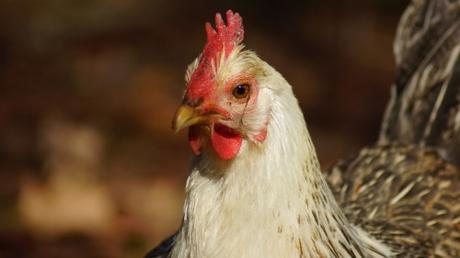
I’m getting ready to give my two chicken workshops for our town Adult Education program. The first workshop covers chicks to coop, while the second workshop covers how to maintain an established flock (food, precautions, basic first aid, eggs, and culling.)
One of the first things I usually tell both classes is that you don’t need to buy every single chicken book out on the market in order to learn about chickens. Get on the internet; ask people who have had chickens before (like your grandparents or the lady down the street (me!) who has a flock.)
Because I think it’s so important to join a chicken community, I’ve come up with a few suggestions for new chicken owners, as well as for those who are more seasoned on ways to have a better backyard flock experience:
1. Get to know your feed store clerks – We have to get chicken feed almost every weekend (a little less in the summer when our birds are free ranging.) We’ve gotten to know the people who work at our local feed store and as a result, we’ve learned from some pretty seasoned chicken owners about local predators, when chicks are available, and what works and what is a waste of money. Chicken owners love to talk to other chicken owners (kind of like new moms like to talk about their babies.) Start a conversation with “I’m planning on raising chickens this spring, any words of wisdom?” or something like “Our birds have made it through that rough winter…” trust me, when you combine weather and chickens, you’ve hooked a conversation.
2. Choose one good chicken book (pretty much anything from Storey is good) and one good egg recipe book and then keep them handy. You don’t need every book on the market and besides, if you have chickens you are guaranteed to get chicken books as gifts.
My all-time favorite egg recipe book is The Good Egg by Marie Simmons (2000) -you can get used copies of this book for practically nothing on Amazon. Not only does it include every recipe you could imagine (from different countries even) but the additional information in the side bars makes reading it a joy. Honestly, there have been nights when I have curled up with this cookbook.
3. Join an online community. There are several Facebook pages dedicated to chickens, check them out (enter chickens in the Facebook search bar.) With some of those pages you’ll need to request to be a member, no worries, if you have chickens (or simply love chickens) you will be added to the group. Most major agricultural/homesteading magazines also host a blog or board that is filled with information, check them out for fantastic bits of advice. Lastly (but not the least important) join an online community like Backyardchickens.com where you can ask anything and search their incredible database, if you have a question – someone, somewhere has an answer or a story about it.
4. Learn how to use keywords. Key words are the words that describe the information you are looking for when doing an internet search. For example, if I have a chicken with a foot problem, I wouldn’t enter “chicken with foot problem” into the Google search box, I might instead enter- “chicken, foot, feet, infection.” I’d see what kinds of responses I’d get and then I’d try to narrow it down to something like “chicken, infection, treatment” (because what I was really looking for was how to take care of my chicken’s foot.) Keywords help you narrow your topic down in the way the game 20 Questions does. Enter each word followed by a comma and omit words like “the”, “and” and any adjectives (unless it’s important to the topic like “tiny” is important to a “tiny house” search. ) Take a look at the returned search and then see if you can narrow your topic even further until you find the information you need.
5. Don’t forget your state’s co-operative extension. When I’ve really been in a jam (it’s usually a medical question) our NH co-op has always been there for me. The people who work for the co-op have a wealth of information which they are more than happy to share with you. All you have to do is ask.
***
Wendy Thomas writes about the lessons learned while raising children and chickens in New Hampshire. Contact her at [email protected]
Also, join me on Facebook to find out more about the flock (children and chickens) and see some pretty funny chicken jokes, photos of tiny houses, and even a recipe or two.
Like what you read here? Consider subscribing to this blog so that you’ll never miss a post. And feel free to share with those who may need a little chicken love.

